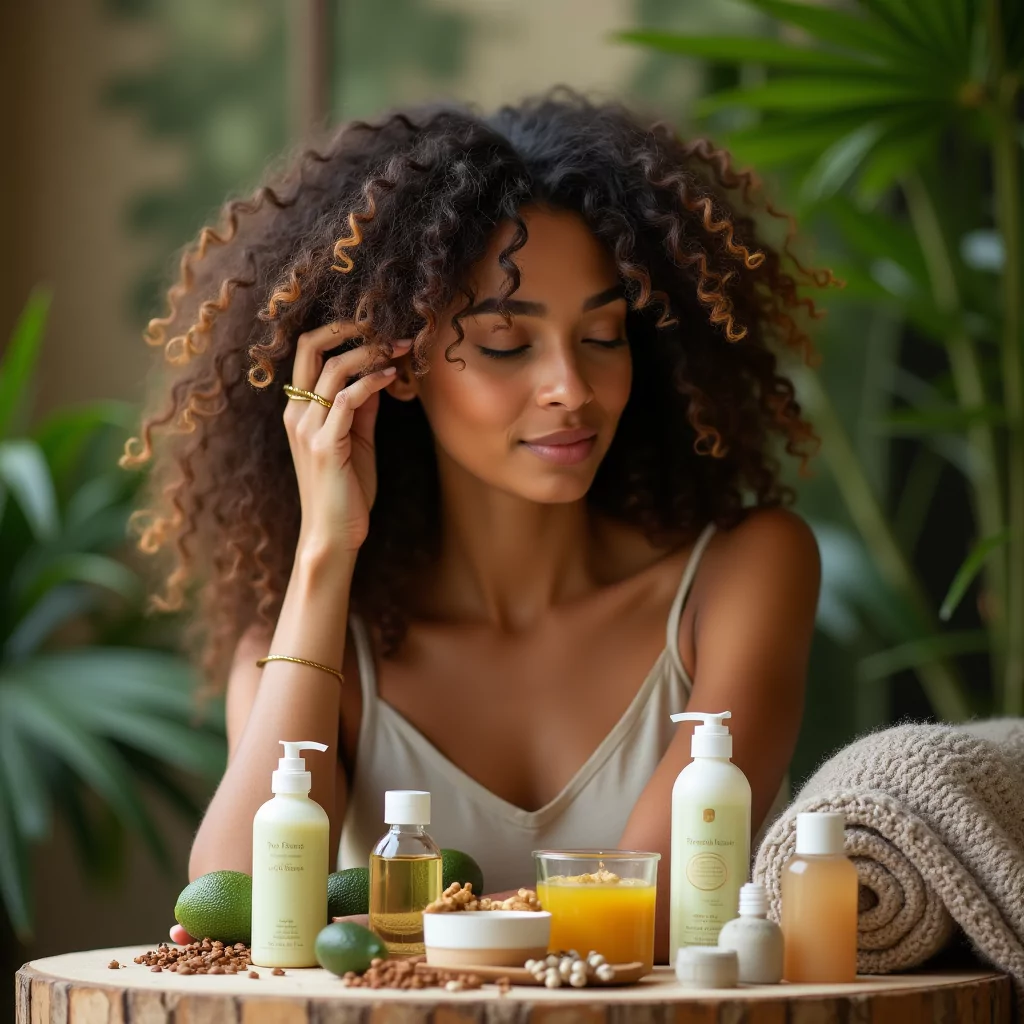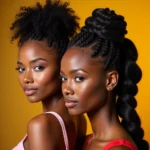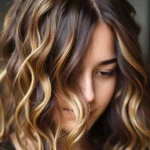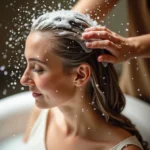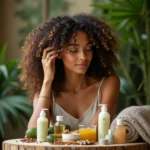In recent years, natural hair care products have become increasingly popular as people seek gentler, healthier, and more sustainable alternatives for their hair. Unlike conventional hair products, which often contain harsh chemicals, natural options are typically made with plant-based ingredients that nourish and protect both the hair and scalp. In this blog post, we’ll explore the many benefits of using natural hair care products, key ingredients that make them effective, and practical tips for integrating them into your daily routine. Embracing natural hair care is not only a choice for personal health but also a step towards more eco-friendly and ethical beauty practices.
What are the Benefits of Natural Hair Care Products
Natural hair care products offer numerous advantages that contribute to healthier hair and a more sustainable lifestyle
Gentle on the Hair and Scalp
One of the primary benefits of natural hair care products is their gentleness on both hair and scalp. Unlike conventional products that often contain harsh chemicals, natural ingredients such as plant extracts and essential oils provide soothing effects, reducing the risk of irritation and allergic reactions.This makes them suitable for all hair types, including those with sensitivities. Learn more about building the right hair care routine here.
Nutrient-Rich Formulations
Natural hair care products are typically rich in vitamins, minerals, and antioxidants. Ingredients like argan oil and jojoba oil are packed with essential fatty acids that nourish and hydrate hair, promoting overall health and shine. These nutrient-dense formulations help improve hair elasticity and reduce damage, resulting in more resilient and vibrant hair.
Environmental Sustainability
Choosing natural hair care products also aligns with eco-friendly practices. Many natural formulations are biodegradable and come in recyclable or compostable packaging, minimizing environmental impact compared to conventional products that often contain synthetic ingredients and single-use plastics. By opting for sustainable brands, consumers can support practices that are kinder to the planet.
No Harsh Chemicals
Natural hair care products are free from aggressive chemicals like sulfates and parabens, which can strip hair of its natural moisture and lead to long-term damage-By avoiding these harsh ingredients, individuals can maintain the integrity of their hair while promoting its health and natural shine.
Cruelty-Free Practices
Another significant benefit is that many natural hair care brands prioritize cruelty-free practices, ensuring that no animals are harmed in the production or testing of their products. This ethical approach resonates with consumers who are concerned about animal welfare and prefer products made with respect for all living beings.
Versatility and Effectiveness
Natural ingredients are often versatile and provide multiple benefits. For instance, coconut oil can hydrate hair, tame frizz, and even serve as a makeup remover. This multifunctionality allows consumers to streamline their beauty routines while still achieving desirable results. By integrating natural hair care products into their routines, individuals can embrace a healthier approach to hair care that not only enhances their hair’s beauty but also supports personal values of sustainability and compassion.
Natural Hair Care Products
Natural hair care products are formulated with ingredients that are free from harsh chemicals, synthetic fragrances, and preservatives. These products not only benefit the hair and scalp but also minimize environmental impact by utilizing biodegradable and non-toxic components. Choosing natural hair care options can lead to healthier hair and a healthier planet.
Key Ingredients in Natural Hair Care: What Are the Most Beneficial Ones?
Natural hair care products often feature a range of beneficial ingredients that promote hair health.
Aloe Vera
Aloe vera is renowned for its soothing and moisturizing properties. It helps reduce scalp inflammation, balances pH levels, and hydrates dry hair. To incorporate aloe vera into a hair care routine, one can apply fresh aloe vera gel to the scalp and hair strands, leaving it on for about 30 minutes before rinsing.
Oils
Several natural oils are prized for their nourishing properties:
Coconut Oil: Known for its high saturated fat content, coconut oil effectively pene-trates the hair shaft, providing moisture and reducing protein loss. Its antibacterial
and antifungal properties also promote a healthy scalp.
Argan Oil: Often referred to as “The Tree of Life,” argan oil contains essential fatty
acids that moisturize and soothe the hair, while also supporting scalp health and hair
growth.
Olive Oil: This oil is particularly beneficial for dry, damaged hair, as it replenishes natural oils and improves shine. It can also be used as a pre-shampoo treatment.
Castor Oil: Rich in Ricinoleic Acid, castor oil is known for its ability to enhance hair growth and overall health.
DIY Natural Hair Care: How Can You Make Your Own Hair Care Products?
For those interested in creating their hair care products, several simple recipes can be made at home using natural ingredients. Ingredients like apple cider vinegar and honey can be effective for cleansing and conditioning hair. Additionally, various oils can be combined with essential oils, such as rosemary, which is believed to stimulate circulation and promote hair growth.
Choosing the Right Products
When selecting natural hair care products, it is crucial to look for those that are pH-balanced to match the natural pH of hair and scalp. This helps maintain the integrity of the hair cuticle and prevents damage. As each hair type has unique needs, it is advisable to experiment with different products and routines to find what works best for individual hair types, such as curly or straight hair.
Techniques and Practices
Natural hair care encompasses a variety of techniques and practices tailored to main-tain and enhance the health of textured hair. The importance of a well-structured wash day ritual is a cornerstone of this care, particularly among Black women, who often share personal and familial traditions surrounding this routine. This process typically includes hydrating treatments, careful detangling, and the use of suitable shampoo and conditioner products, with wide-tooth combs being essential for managing knots and tangles.
Cleansing Methods
A growing trend in hair care is co-washing, which involves using a cleansing conditioner instead of traditional shampoo. This method helps to retain natural oils while cleansing the hair and scalp, making it particularly beneficial for textured hair types that are prone to dryness. However, co-washing may not be effective for all individuals, especially those with product buildup. In such cases, pre-poo treatments, such as apple cider vinegar rinses, can be employed to prepare the hair for cleansing. Additionally, clarifying shampoos are recommended periodically to remove buildup and provide a “reset” for the hair, though care should be taken to avoid overuse.
Conditioning Techniques
Conditioning is a critical step in the hair care regimen, with experts suggesting that individuals with curly or textured hair should prioritize hydrating shampoos and conditioners. Effective conditioning involves applying the product, leaving it on for a few minutes, and detangling it with a wide-tooth comb to ensure even distribution. The incorporation of leave-in moisturizers and deep conditioning treatments is also essential for combating dryness and frizz. Many professionals recommend using oils and creams that contain ingredients like jojoba and argan oil to enhance shine and manageability.
Product Selection
When selecting hair care products, the trend is moving towards natural and sustainable options. Many brands are developing solid shampoos and conditioning treatments utilizing eco-friendly ingredients such as clays, herbs, and biosurfactants to replace traditional formulations. For those seeking sulfate-free options,co-washes that combine cleansing and conditioning properties are also available, providing a gentle yet effective alternative for maintaining hair health without stripping it of its natural oils.
Common Issues and Solutions in Natural Hair Care: What Are the Key Challenges?
Natural hair care presents a variety of challenges that can significantly impact the health and appearance of hair. Understanding these common issues, along with effective solutions can help individuals maintain healthy hair.
Dryness and Moisture Balance
One prevalent issue in natural hair care is dryness, which can lead to breakage and damage. To combat dryness, experts recommend using deep or moisturizing conditioners regularly. A deep conditioner serves as an intensive treatment that nourishes and softens the hair, and it is generally applied once every two weeks for optimal results. Daily moisturizing is also crucial, particularly for those with natural hair, where ends can dry out quickly. Techniques such as using a refresher spray or employing the LOC (Liquid, Oil, Cream) method can be effective in maintaining moisture levels throughout the day.
Hair Damage and Breakage
Hair damage often manifests as split ends, excessive shedding, or fragile strands. In-corporating protein conditioners can help rebuild damaged hair follicles and strengthen hair. However, it is essential to determine if hair requires protein treatment, as overuse can lead to brittleness. Additionally, regular trims every six to eight weeks can prevent split ends from worsening and promote healthier hair growth.
Scalp Health
Scalp health is a crucial aspect of hair care that is frequently overlooked. Environmental factors such as air quality can affect the scalp and hair; for example, polluted air may lead to hair loss. To maintain a healthy scalp, it is advisable to avoid harsh chemicals found in many hair products, as well as to be cautious with chemical treatments like hair dyes and straighteners. Rinsing hair with cold water can help seal moisture and improve scalp health, while the use of apple cider vinegar can help remove product buildup and dandruff.
Hair Types and Specific Needs
Different hair types have unique care requirements. For instance, Vata-dominant hair types should be mindful that saline can exacerbate dryness, while Kapha-dominant hair types may benefit from the salt content in some products that help eliminate excess oil. Identifying one’s hair type and tailoring care routines accordingly is crucial for achieving the best results.
Product Selection
Selecting the right products is vital in natural hair care. It is advisable to choose products with natural ingredients, avoiding harmful additives such as sulfates, parabens, and alcohol, which can irritate the scalp and strip hair of its natural moisture. Opting for products with natural oils (e.g., coconut, argan, or shea butter) and proteins can enhance hair health while minimizing damage.
Community and Culture
The natural hair movement has fostered a vibrant community that transcends geographical boundaries, empowering individuals of African descent to embrace their natural hair textures. This movement, which gained significant traction in the United States during the 1960s and saw a resurgence in the 2000s, aims to challenge conventional beauty norms and promote self-acceptance among Black individuals.
Online Communities and Social Media Influence
Social media platforms have revolutionized the natural hair movement, creating digital spaces for advocacy, empowerment, and community building. Influencers and content creators play a pivotal role in this landscape, using their platforms to showcase diverse hairstyles and challenge societal beauty standards. Popular figures like Patrice Yursik of Afrobella and Whitney White of Naptural85 have made significant contributions, highlighting the intersection of personal narratives and broader cultural shifts. With hashtags like #naturalhair amassing millions of posts, these platforms facilitate the sharing of styling tips, personal experiences, and cultural pride.
The Cultural Significance of Natural Hair
The embrace of natural hair goes beyond aesthetics; it symbolizes a broader movement toward self-acceptance and cultural identity. The terminology associated with the natural hair community, such as “Big Chop,” “Bantu Knot,” and “Creamy Crack” (a colloquial term for chemical relaxers), reflects the nuanced relationship individuals have with their hair and the historical context of hair care within the Black community. This cultural significance fosters a sense of solidarity among individuals, encouraging the celebration of Afro-textured hair in its natural state.
Events and Gatherings
The growth of online communities has also led to the organization of real-world events such as CurlFest and Curly Treats, where individuals come together to celebrate their natural hair and culture. These gatherings serve as platforms for education, empowerment, and connection, allowing participants to share experiences and resources while reinforcing the importance of embracing their natural beauty.
Impact on the Beauty Industry
As the natural hair movement continues to gain momentum, it has prompted a reevaluation of the beauty industry’s standards and practices. Brands are increasingly recognizing the need to cater to the diverse needs of consumers with natural hair, leading to the development of products specifically designed for Afro-textured hair. This shift not only enhances representation within the beauty industry but also encourages a broader acceptance of diverse beauty standards.
Conclusion
Switching to natural hair care products is a rewarding decision for both your hair and the environment. With their gentle, nutrient-rich ingredients and eco-friendly practices, these products provide a healthier, more sustainable approach to hair care. From improving hair texture and reducing damage to supporting cruelty-free and biodegradable options, the advantages of natural hair care extend beyond beauty. As you explore and incorporate these products into your routine, you’ll likely find a new appreciation for their versatility and effectiveness. Ultimately, choosing natural products empowers you to take better care of your hair while aligning with values that prioritize health and sustainability.
What is the best natural hair care routine?
A natural hair care routine includes cleansing, conditioning, and moisturizing in a way that maintains the hair’s health:
Cleanse: Use a mild shampoo or try co-washing (using a cleansing conditioner) to retain natural oils. If you experience product buildup, use a clarifying rinse like apple cider vinegar.
Condition: Apply a deep conditioner or leave-in moisturizer regularly, especially for textured hair. This adds hydration and helps detangle.
Moisturize: Use the LOC (Liquid, Oil, Cream) method, especially for dry or curly hair, to keep moisture locked in throughout the day.
Protect: Consider protective styles that reduce breakage, and avoid excessive heat styling.
Scalp Care: Gently massage your scalp to improve circulation and use oils like tea tree oil if you’re prone to dandruff.
How can I keep my natural hair healthy?
Keeping natural hair healthy requires maintaining a balance of moisture, nourishment, and scalp care:
Moisturize often: Dryness can lead to breakage, so use daily moisturizers or a refresher spray.
Deep condition biweekly: This helps strengthen hair and improves elasticity.
Avoid over-manipulation: Too much styling or tight hairstyles can weaken hair, so choose gentle, protective styles.
Use natural oils: Applying oils like coconut, olive, or castor oil can add shine, improve manageability, and promote growth.
Trim regularly: Trim split ends every 6–8 weeks to prevent further damage and promote healthy growth.
What is the best natural thing to put in your hair?
One of the best natural ingredients for hair is coconut oil because it deeply penetrates the hair shaft, reduces protein loss, and adds moisture. It also has antibacterial properties, which help maintain a healthy scalp. Other great natural ingredients include:
Aloe vera for hydration and scalp balance
Argan oil for moisture and shine
Apple cider vinegar to clarify and remove buildup
What is the best homemade hair conditioner?
A simple and effective homemade conditioner combines coconut oil and honey:
Mix 2 tablespoons of coconut oil with 1 tablespoon of honey.
Apply the mixture to damp hair, focusing on the ends.
Leave it on for 20–30 minutes before rinsing thoroughly.
This DIY conditioner adds hydration, softness, and shine to hair, making it ideal for dry or damaged hair. Another option is to use avocado and olive oil for extra nourishment, especially for frizzy or coarse hair types.
